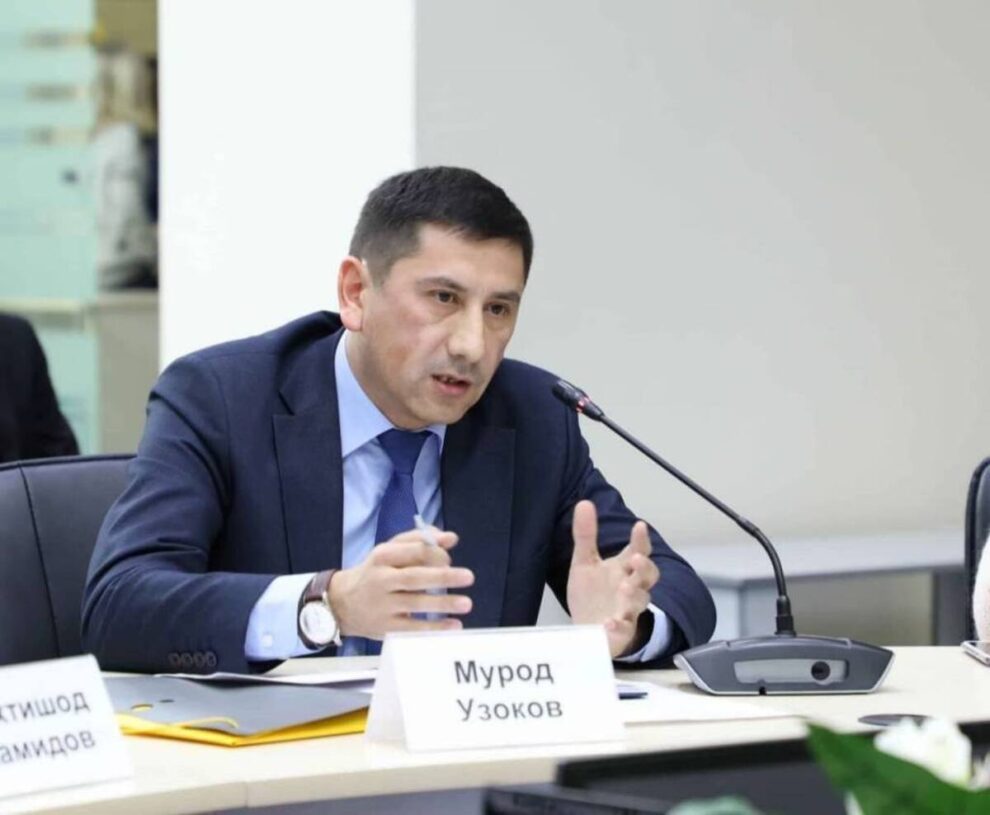In recent years, the leadership of Uzbekistan, while implementing a fundamentally new proactive foreign policy strategy, has paid special attention to building practical co-operation with international organisations. One of the priority directions in this regard is the development and strengthening of multifaceted co-operation with the UN and its specialised structures.
Currently, Tashkent is comprehensively expanding its contacts with the UN Development Programme (UNDP), the UN Office on Drugs and Crime (UNODC), the UN Regional Centre for Preventive Diplomacy for Central Asia (UNRCCA), the International Organisation for Migration (IOM), and other UN entities. In this context, particular importance is attached to ensuring security and stability in Central Asia and enhancing its role in the international relations system.
Thanks to the revitalisation of Uzbekistan’s partnership with the UN, significant progress has been made in fostering a new atmosphere of mutually beneficial cooperation in Central Asia, based on mutual trust and good neighbourliness.
As a result, there has been a noticeable consolidation of regional states, which have become more active in advancing joint regional and international initiatives, programs, and projects aimed at promoting sustainable development in Central Asia.
For instance, while from 1991 to 2016, about 20 resolutions were adopted in the UN at the initiative of Central Asian states, and from 2016 to the present, 18 resolutions have been adopted.
These documents address important issues such as sustainable development, security, peacebuilding, and trust-building in the region, as well as the preservation of water resources, climate change, ecology, and the prevention of radiological threats. Protecting the rights of youth and promoting tolerance have also gained significant attention.
Moreover, Uzbekistan has become an active participant in advocating for the interests of Central Asia within the UN framework. For instance, between 2018 and 2022, six UN General Assembly resolutions were adopted at the initiative of our country. These resolutions include “Strengthening Regional International Co-operation for Peace, Stability, and Sustainable Development in the Central Asian Region” (June 2018), “Education and Religious Tolerance” (December 2018), and “Declaration of the Aral Sea Region as a Zone of Environmental Innovations and Technologies” (May 2021).
Furthermore, within the framework of the UN Human Rights Council, a resolution on “The Impact of the Covid-19 Pandemic on the Human Rights of Youth” was adopted in October 2021. In Unesco, the “Khiva Process” was recognised in November 2021, following the international forum “Central Asia at the Crossroads of World Civilizations” held in Khiva from September 14-16, 2021.
The Code of Voluntary Commitments of States during a pandemic, developed by Uzbekistan, has been circulated as an official document of the UN General Assembly, contributing to global efforts to combat Covid-19.
Additionally, the Tashkent and Bukhara Declarations have also been recognised as official UN documents, calling for international support for multi-confessional and intercultural dialogue and the promotion of multilateral co-operation in the prevention and counteraction of terrorism.
Collectively, all the resolutions and documents initiated by Central Asian countries within the UN have undeniably laid a strong foundation for uniting the efforts of regional states and the international community in ensuring the political, economic, social, and environmental security of Central Asia.
Several key factors have played a significant role in the successful promotion of Uzbekistan’s interaction with the UN:
Firstly, intensive diplomacy by the President of Uzbekistan and the intensification of political dialogue within the UN. Starting in 2016, thanks to the political will of President Shavkat Mirziyoyev, Tashkent has actively participated in the activities of the UN General Assembly and its specialised agencies. In particular, the President of Uzbekistan took part in and addressed the 72nd, 75th, and 76th sessions of the UN General Assembly, as well as the High-Level Segment of the 46th session of the UN Human Rights Council.
During this period, President Mirziyoyev held three meetings with the UN Secretary-General Antonio Guterres (in June and September 2017 and April 2019), which allowed for comprehensive discussions and co-ordination of effective measures to develop mutually beneficial co-operation, primarily in ensuring regional security and sustainable development in Central Asia.
On November 10-11, 2017, during an international conference under the auspices of the UN in Samarkand, titled “Central Asia: One Past and a Common Future, Cooperation for Sustainable Development and Mutual Prosperity,” Central Asian states emphasised the need for closer and co-ordinated co-operation among Central Asian countries in anticipating new challenges and threats. They also stressed the importance of strengthening the central role of the UN in addressing security challenges in the region.
The conference’s communique called on all UN entities, other international organisations, and interested partner countries to increase and strengthen their cooperation with the countries of Central Asia on issues related to regional security and sustainable development. This co-operation should align with the priorities, interests, needs, and national programs of Central Asian countries, providing them with the necessary technical, expert, legal, financial, and other assistance.
Furthermore, during the Shanghai Co-operation Organisation (SCO) summit held in Samarkand in September 2022, a meeting between President Mirziyoyev and UN Deputy Secretary-General Rosemary DiCarlo took place, resulting in the adoption of a “Roadmap” for further development of practical cooperation.
In 2022 and January 2023, Uzbekistan hosted the first Deputy Secretary-General of the UN, Amina J. Mohamed.
There are 11 Plans of Practical Measures for the Development of Co-operation between Uzbekistan and the UN and its specialised agencies, adopted and being implemented between 2021 and 2023. These measures undoubtedly contribute to enhancing the resilience of Central Asia to external challenges.
Secondly, it promotes a constructive agenda in combating terrorism, drug trafficking, and other transnational challenges.
Today, Uzbekistan is a party to 14 major international legal instruments and actively participates in global efforts to counter international terrorism.
Our country was among the first to support the fight against this threat, including the UN Global Counter-Terrorism Strategy (GCTS), which has become a comprehensive, collective, and universally recognised legal framework for uniting national and international efforts in countering terrorism.
Uzbekistan has become an active participant in the implementation of the UN Global Counter-Terrorism Strategy in Central Asia, which was adopted in 2011. The implementation of this Strategy has allowed for the strengthening of regional consensus on common principles and approaches to counterterrorism, the establishment of effective mechanisms for cooperation on both a bilateral and multilateral basis, the enhancement of counterterrorism potential, and the strengthening of regional security.
The logical continuation of practical activities in this direction was the holding of the International High-Level Conference on “Regional Co-operation of Central Asian Countries within the Framework of the Joint Plan of Action for the Implementation of the UN Global Counter-Terrorism Strategy,” proposed by President Mirziyoyev at the 75th session of the UN General Assembly.
The organisation of this conference allowed for the identification of new priorities and directions for co-operation, giving a fresh impetus to regional co-operation in countering the threats of extremism and terrorism. The Tashkent Declaration and the updated Joint Plan of Action for the Implementation of the UN Global Counter-Terrorism Strategy in Central Asia adopted as a result of the forum, will be of paramount importance for the region’s sustainable development.
At the same time, effective implementation of the tasks set requires the strengthening of mechanisms for continuous monitoring and co-ordination of interaction among Central Asian countries. In this regard, in October 2022, a “Roadmap” was signed between Uzbekistan and the UN Counter-Terrorism Office. As part of this “Roadmap,” work has begun on the establishment of a UN Counter-Terrorism Office in the region.
Simultaneously, with the growing threat of cyberterrorism and for effective counteraction to the use of digital technologies for terrorist purposes, Uzbekistan has intensified efforts to implement the UN Counter-Terrorism Centre’s (UNCCT) Programme on Cybersecurity and New Technologies in Central Asia, adopted in 2020.
In particular, from September 25 -26 of this year, for the first time in Tashkent, a regional seminar on this topic was planned in collaboration with the UN Regional Centre for Preventive Diplomacy for Central Asia. During the event, the parties discussed the creation of a virtual network on cyberterrorism in Central Asia.
Uzbekistan also actively co-operates with the UN and its specialised agencies in countering transnational threats related to drugs and crime.
Specifically, effective co-operation with the UN Office on Drugs and Crime (UNODC) in implementing practical projects to strengthen national and regional capacity is underway. At the initiative of Tashkent, a regional program for Central Asian countries for 2022-2025 was developed and signed jointly with UNODC in 2021, providing a solid foundation for work in this direction.
Uzbekistan also plans to develop a Joint Anti-Drug Action Plan with UNODC covering Central and South Asian countries.
One of the important institutions in countering drug-related crimes is the successful operation of the Central Asian Regional Information Coordination Centre for Combating Illicit Trafficking in Narcotic Drugs, Psychotropic Substances, and their Precursors (CARICC) in Tashkent. CARICC has significantly increased the level of coordination and cooperation in this area.
Continuing efforts in this regard, an agreement reached in 2021 between the President of Uzbekistan and the Executive Director of UNODC resulted in the opening of the UNODC Information Centre in Tashkent in May 2023. Its main tasks include assisting in strengthening the state borders of Central Asian countries bordering Afghanistan and countering the illicit trafficking of narcotic drugs, firearms, human trafficking, and illegal financial flows.
Thirdly, the expansion of cooperation on establishing peace and stability in Afghanistan.
Uzbekistan consistently advocates for the peaceful, political, and diplomatic settlement of the situation in Afghanistan. In this regard, Uzbekistan’s pragmatic and constructive policy towards Afghanistan has become comprehensive and dynamic since Shavkat Mirziyoyev assumed the presidency of the country. Thus, Tashkent has intensified its efforts to address the Afghan issue and continues to call for the coordination of all countries’ efforts to stabilise the situation in Afghanistan within the framework of the UN.
It is important to note that in all of the Uzbek president’s speeches at the UN, special attention is given to the resolution of the Afghan issue. Concrete initiatives are put forward to assist in achieving stability in this country. These initiatives also demonstrate Tashkent’s commitment to preserving the central role of the UN in resolving the Afghan issue and its interest in uniting the efforts of the entire international community to establish lasting peace in Afghanistan.
In particular, Mirziyoyev has repeatedly stated at the UN General Assembly that ‘issues of peace and stability in Afghanistan should remain at the centre of the UN’s attention’ and ‘the role of the UN in resolving the situation in Afghanistan needs to be strengthened, and its voice should be louder than ever.’
Another important contribution of Uzbekistan in this direction was the hosting of the 2018 High-Level International Conference on Afghanistan in Tashkent under the auspices of the UN. This conference marked a new stage in mobilising the efforts of the international community to address the Afghan issue.
Similarly, the International High-Level Conference ‘Central and South Asia: Regional Connectivity, Challenges, and Opportunities,’ held jointly with the UN in Tashkent in 2021, reinforced the ongoing efforts of our country.
A distinctive feature of Uzbekistan’s Afghan policy is that Tashkent views Afghanistan not only in terms of security threats but also as a country capable of acting as a bridge between Central and South Asia and strengthening trade and economic ties between the two regions.
Furthermore, Tashkent continues to call on the UN and the international community not to reduce international aid and attention to prevent Afghanistan from becoming a source of permanent threats once again.
That is why Uzbekistan is taking active steps to consolidate the efforts of the entire international community in transforming Afghanistan into a peaceful, stable, and prosperous state, free from terrorism, war, and narcotics. In particular, the Uzbek city of Termez, located on the border with Afghanistan, plays an important intermediary role by facilitating the delivery of humanitarian aid sent by foreign countries to Afghanistan.
The international logistics hub in Termez, known as the ‘Cargo Center,’ was opened in 2021 at the initiative of President Mirziyoyev under the auspices of the UN currently serves as the main point of dispatch for UN humanitarian aid to Afghanistan. In just two years, it has delivered over 1,000 tons of humanitarian aid to Afghanistan from the World Food Programme, Unicef, and the UN High Commissioner for Refugees.
Furthermore, Uzbekistan is interested in developing a unified international approach to the Afghan issue that would bring together the positions of various states in Afghanistan and expedite the country’s exit from the complex socio-economic situation.
To achieve this goal, President Mirziyoyev has initiated the formation of a high-level International Negotiating Group under the auspices and with the support of the UN. Its implementation will help strengthen international consensus on key issues related to the settlement of the situation in Afghanistan and keep the Afghan issue at the center of global attention.
This, in turn, will mobilise resources from the international community for the implementation of infrastructure and socio-economic projects that will create a foundation for long-term and sustainable peace in Afghanistan.
Fourth, progressive co-operation with the UN on youth policy.
In the context of the growing population in Central Asian countries, where youth make up a significant demographic group — about 30%, Uzbekistan, aware of the increasing demand for socialisation, education, and employment from the youth, actively collaborates with the UN in this direction. Effective youth policy is a crucial condition for ensuring stability and sustainable development in Central Asia.
That is why President Mirziyoyev pays special attention to positioning youth not as a risk but as agents of positive change and a source of new opportunities for the sustainable development of Central Asian countries and the region as a whole.
In this context, significant work has been done in recent years. In particular, the Samarkand International Forum on Youth Rights was successfully held under the auspices of the UN in August 2020, resulting in the adoption of the Samarkand Resolution ‘Youth 2020: Global Solidarity, Sustainable Development, and Human Rights.’ The document defines the important role that youth can play in promoting peace and security, sustainable development, and human rights, as well as the significance of active, meaningful, and inclusive youth participation in decision-making processes, especially in Central Asian countries.
Also, in December 2022, in Samarkand, in collaboration with international partners, including the UN Office of the High Commissioner for Human Rights and its Regional Office, Unicef, UNDP, and others, a Global Forum on “Human Rights Education” was organised. The Samarkand Action Plan for 2023-2025 on the development of human rights education was adopted as a result, outlining tasks, proposals, and recommendations for the international community, national governments, educational and research institutions, and civil society institutions for the effective implementation of human rights education and training. It is important to note that the initiative to hold this forum was put forward by the President of Uzbekistan at the 76th session of the UN General Assembly and the 46th session of the UN Human Rights Council.
A significant achievement can be considered the UN General Assembly resolution on “Enlightenment and Religious Tolerance” initiated by President Mirziyoyev. The document aims to ensure universal access to education, eradicate illiteracy, and promote tolerance, mutual respect, and understanding in the interest of strengthening security and peace.
Furthermore, Tashkent actively advocates for the adoption of the UN International Convention on Youth Rights, which should emphasise the need for active youth participation in democratic processes, provide the right to comprehensive support and family protection, the right to social support and care, legal capacity, equality before the law, participation in decision-making at national and international levels, protection from violence and exploitation.
Undoubtedly, Uzbekistan’s measures to ensure the interests of youth help address challenges and open up opportunities for harnessing the potential of young people, thereby enhancing the stability and security of Central Asia.
Fifth, consolidating efforts to address regional climate change issues.
Currently, the Central Asian region is increasingly experiencing the consequences of global climate change. Climate change contributes to the exacerbation of water scarcity, land degradation, desertification, and the increasing number of natural disasters, which pose a critical problem for the region and a serious threat to sustainable development.
According to the UN, Central Asia is experiencing a faster rate of warming than other parts of the world. While the average global temperature has increased by 1.1C since 1900, the average annual temperature in our region has increased by 1.6C, rising from 13.2C to 14.8C. According to forecasts, by 2050, air temperatures could rise by another 1.5-3C.
In this context, as well as recognising the importance of the issue and the need for effective measures to address the mitigation and adaptation to the effects of climate change, the climate agenda becomes a priority for Uzbekistan. President Mirziyoyev has repeatedly stated that “Uzbekistan attaches serious attention to the issues of combating climate change, protecting the environment, and biodiversity. This is our human duty to present and future generations.”
Today, it can be confidently affirmed that these words are substantiated by concrete actions. Thanks to Tashkent’s efforts, the Multi-Partner Human Security Trust Fund for the Aral Sea Region was established in 2018 under the auspices of the UN, which has become a reliable platform for practical assistance from the international community to the population of the region living in an environmentally challenging area. To date, the Fund has attracted $134.5mn in financial resources from donor countries.
The UN also supported the establishment of the International Innovation Center for the Aral Sea in 2018. The center’s tasks include the development of scientific research and practical work, improving the ecosystem and sustainable livelihoods, and the introduction of advanced research and innovation in the salt-affected lands of the dried-up Aral Sea.
A significant achievement was the unanimous adoption of a special resolution by the UN General Assembly during its 75th session in 2021, proposed by President Mirziyoyev declared the Aral Sea region a zone of environmental innovation and technology. About 60 states co-authored the resolution, in which the UN General Assembly expressed support for regional initiatives and measures aimed at improving the environmental, social, economic, and demographic situation in the Aral Sea region.
In addition to this, in 2023, the Central Asian University for Environmental Studies and Climate Change was established in Tashkent, which will be engaged in the training, retraining, and advanced training of specialists, scientists, researchers, leaders, and entrepreneurs capable of addressing important environmental, socio-economic, and scientific and technical problems of Uzbekistan and Central Asia.
Uzbekistan actively participates permanently in the annual sessions of the UN Framework Convention on Climate Change. During the 27th session held in 2022, the Uzbek delegation advocated for the consolidation of efforts to achieve carbon neutrality, the promotion of renewable energy sources, climate adaptation projects, desertification, and land degradation control, the introduction of water-saving technologies, and other climate actions in Central Asia.
Another important aspect is that the UN has supported Uzbekistan’s intention to host the first “Samarkand International Forum for Solidarity for the Sake of Common Security and Prosperity” in the spring of 2024, dedicated to climate change issues. The forum will also include discussions on opportunities for international cooperation in reducing risks and threats in the Central Asian region and attracting climate financing.
Considering the escalating challenges and emerging new threats to the Central Asian region, Uzbekistan, led by President Mirziyoyev will continue to strengthen cooperation with the UN in ensuring regional security and sustainable development in Central Asia. This will also be facilitated by the dynamic pace of regional processes and co-operation and the consolidation of efforts by Central Asian countries to address regional issues.
Furthermore, Uzbekistan’s participation in the 78th session of the UN General Assembly will contribute to the formation of a broad and effective agenda for further engaging the potential of global co-operation in strengthening the security and stability of the region.
Overall, it can be noted that Uzbekistan’s proactive diplomacy within the framework of the UN to promote the interests of Central Asia opens up wide opportunities and prospects for practical interaction with the international community. Uzbekistan’s and Central Asia’s openness to developing global relationships will transform challenges into opportunities, ultimately contributing to the formation of a new model of regional co-operation in changing circumstances.
Source: Gulf-times















